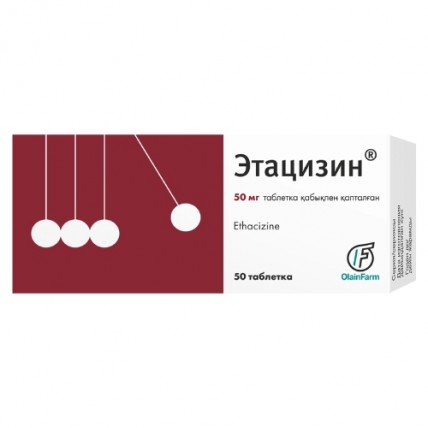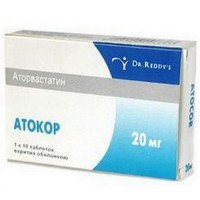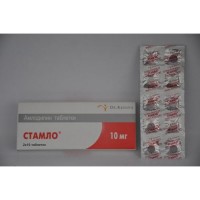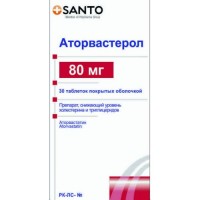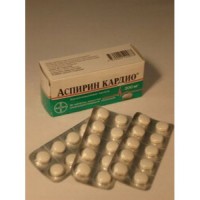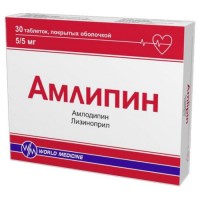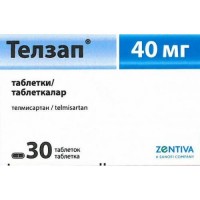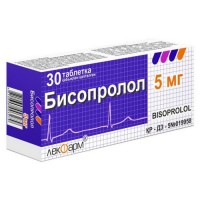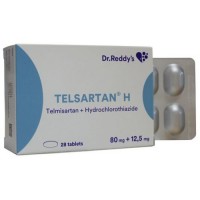ETACIZIN (Ethacizine) 50 mg, 50 tablets
- $55.00
- $70.00
What is Etacizin?
Etacizin (Ethacizine) is a medication primarily used to treat certain types of heart rhythm disorders. It belongs to the class of antiarrhythmic drugs known as Class 1C, which work by stabilizing the cardiac cell membranes and reducing the rapid influx of sodium ions that can lead to abnormal heartbeats.
This action helps restore and maintain a regular heart rhythm, particularly in cases of supraventricular and ventricular arrhythmias.
How Does Etacizin Work?
Etacizin (Ethacizine) is an antiarrhythmic medication classified under Class 1C, which means it primarily works by stabilizing the cardiac cell membranes and significantly slowing the electrical conduction within the heart. This process involves blocking the fast sodium channels on the cardiac cells.
Sodium ions play a critical role in generating and propagating the electrical impulses that regulate the heart's rhythm.
By inhibiting the flow of these ions, Etacizin reduces the excitability of the heart muscle, thereby preventing the rapid and erratic electrical activity that can cause arrhythmias.
In addition to its sodium channel-blocking effects, Etacizin has a mild blocking effect on calcium channels, which contributes to its ability to manage certain types of arrhythmias.
Calcium channels influence the contractility of the heart muscle and the conduction of electrical impulses.
By partially blocking these channels, Etacizin can further stabilize the heart's rhythm without significantly affecting the heart's overall contractile function.
Etacizin's action leads to a lengthening of the PQ interval, PR interval, and QRS complex on an electrocardiogram (ECG).
This indicates that the drug slows down the conduction through the atria, atrioventricular (AV) node, and the ventricles, respectively.
The result is a more regular and controlled heart rhythm, making Etacizin particularly effective in treating both supraventricular and ventricular arrhythmias, including conditions like atrial flutter, atrial fibrillation, and various forms of tachycardia.
Who Should Take Etacizin?
Etacizin is primarily prescribed for adults who suffer from specific types of heart rhythm disorders. It is especially useful for patients with:
Supraventricular Arrhythmias: These include conditions where the abnormal heart rhythms originate above the ventricles, such as atrial fibrillation and atrial flutter. In these cases, Etacizin helps restore and maintain a normal heart rhythm by controlling the rapid electrical activity in the atria.
Ventricular Arrhythmias: Etacizin is also effective in treating arrhythmias that originate in the ventricles, such as ventricular extrasystole and ventricular tachycardia. These are more dangerous than supraventricular arrhythmias and require precise management to prevent complications like sudden cardiac arrest.
The use of Etacizin is tailored to each patient based on the severity and type of arrhythmia, as well as the patient's overall health condition. Typically, treatment begins with a low dose, often 50 mg taken two to three times daily. Depending on the patient's response and the effectiveness of the medication, the dose may be gradually increased. However, this adjustment should always be done under strict medical supervision, with regular ECG monitoring to ensure that the heart’s rhythm remains stable and to avoid any potential proarrhythmic effects (the paradoxical effect where the drug intended to control arrhythmias might induce new arrhythmias).
Etacizin is particularly recommended for patients who have not responded well to other antiarrhythmic treatments or who require a combination therapy approach. For instance, in some cases, Etacizin may be used in conjunction with beta-blockers to enhance its antiarrhythmic effect and reduce the necessary dosage, thereby minimizing side effects.
However, Etacizin is not suitable for everyone. It is contraindicated in patients with certain conditions such as severe heart failure, significant structural heart disease, severe liver or kidney impairment, and for those who have recently experienced a heart attack (within the last three months). Additionally, it should not be used in children, adolescents under 18 years of age, or in pregnant and breastfeeding women due to the lack of sufficient safety data.
What Are the Common Side Effects of Etacizin?
Like any medication, Etacizin can cause side effects, although not everyone experiences them. Some of the common side effects include dizziness, balance disturbances, and visual impairment, particularly at the beginning of treatment. Rarely, patients may experience nausea, epigastric pain, or other gastrointestinal discomforts. Etacizin may also cause alterations in the heart's electrical activity, detectable through an ECG, which necessitates careful monitoring during treatment.
What Precautions Should Be Taken While Using Etacizin?
Patients using Etacizin should adhere to certain precautions to avoid potential complications.
For example, individuals with significant heart structural issues, severe liver or kidney impairments, or those who are pregnant or breastfeeding should not take Etacizin.
Additionally, combining Etacizin with other antiarrhythmic drugs or beta-blockers must be done cautiously to prevent adverse effects.
Elderly patients often require a reduced initial dosage, with gradual adjustments as needed.
How Should Etacizin Be Stored?
Etacizin should be stored in a dry place, away from direct sunlight, at a temperature not exceeding 25°C (77°F).
This ensures the medication remains effective throughout its shelf life, which is typically three years from the date of manufacture.
Can Etacizin Be Taken With Other Medications?
Etacizin may interact with other medications, especially other antiarrhythmic agents or monoamine oxidase inhibitors (MAOIs).
Such combinations can enhance or diminish the therapeutic effects of Etacizin, or increase the risk of side effects.
Therefore, it is crucial to inform your healthcare provider about all the medications you are currently taking before starting Etacizin.
